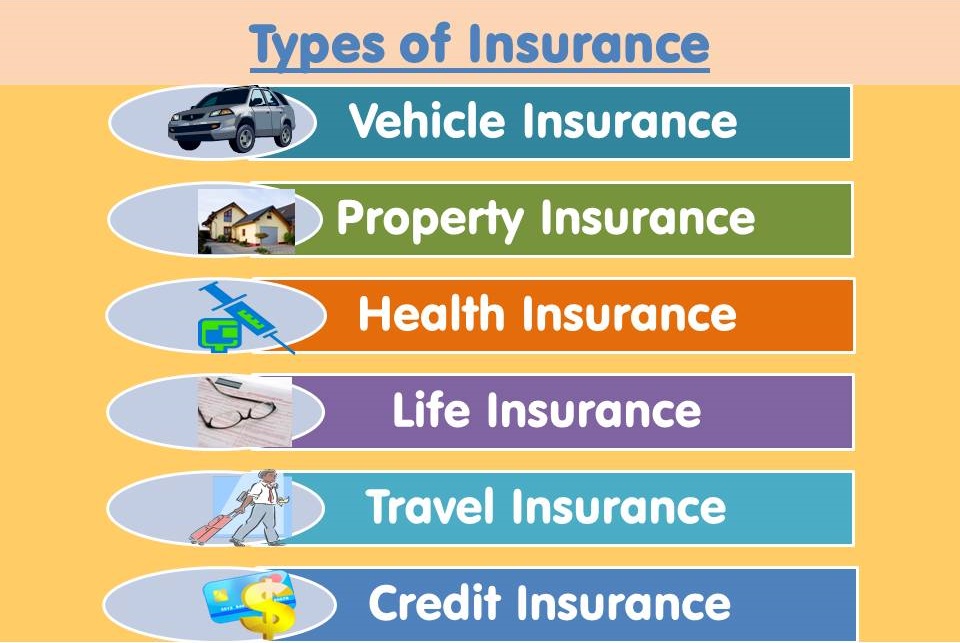- Home
- Business Processes
- Industry Knowledge
- Aerospace Industry
- Automotive Industry
- Banking Domain
- BFSI Industry
- Consumer/ FMCG Industry
- Chemicals Industry
- Engineering & Construction
- Energy Industry
- Education Domain
- Finance Domain
- Hospitality Domain
- Healthcare Industry
- Insurance Domain
- Retail Industry
- Travel and Tourism Domain
- Telecom Industry
- Leadership Skills
- eLearning
- Home
- Domain Knowledge
- Insurance Domain
- Types of Insurance
Types of Insurance
Insurance is categorized based on risk, type, and hazards. Logically, any risk that can be quantified can potentially be insured. Understand the importance of insurance and the different types of insurances like Life Insurance or Personal Insurance, Property Insurance, Marine Insurance, Fire Insurance, Liability Insurance, Guarantee Insurance.
Any risk that can be identified and quantified can potentially be insured. Specific kinds of risk that may give rise to claims are known as perils. An insurance policy will set out in detail which perils are covered by the policy and which is excluded. Given below is a non-exhaustive list of the many different types of insurance that exist in today’s world.
1. Auto Insurance/ Vehicle Insurance:
Auto insurance protects the policyholder against financial loss in the event of an incident involving a vehicle they own, such as in a traffic collision. Any financial loss arising due to the accident of the vehicle owned by the policyholder is covered under Vehicle Insurance policy. In some comprehensive policies, the expenses on medicines for treating injuries and any other medical expenses are also covered. Coverage typically includes the damage to or theft of the car and legal responsibility to others for bodily injury or property damage. Some policies may cover the cost of treating injuries, rehabilitation, and sometimes lost wages and funeral expenses.
Reinsurance:
Reinsurance is a type of insurance purchased by insurance companies or self-insured employers to protect against unexpected losses. Financial reinsurance is a form of reinsurance that is primarily used for capital management rather than to transfer insurance risk.
2. Gap Insurance:
Gap insurance covers the excess amount on your auto loan in an instance where your insurance company does not cover the entire loan. Gap insurance is typically offered by your finance company when you first purchase your vehicle.
3. Health insurance and Dental Insurance:
Health insurance covers various types of insurance related to health. Health insurance is insurance against loss by illness or bodily injury. It provides coverage for medicine, visits to the doctor or emergency room, hospital stays and other medical expenses. Dental insurance, like medical insurance, protects policyholders for dental costs. In the US and Canada, dental insurance is often part of an employer's benefits package, along with health insurance.
4. Accident, Sickness, and Unemployment Insurance:
Workers' compensation, or employers' liability insurance, is compulsory in some countries. Disability insurance policies provide financial support in the event of the policyholder becoming unable to work because of disabling illness or injury. It provides monthly support to help pay such obligations as mortgage loans and credit cards. Short-term and long-term disability policies are available to individuals, but considering the expense, long-term policies are generally obtained only by those with at least six-figure incomes, such as doctors, lawyers, etc.
5. Casualty Insurance:
Casualty insurance insures against accidents, not necessarily tied to any specific property. It is a broad spectrum of insurance that a number of other types of insurance could be classified, such as auto, workers' compensation, and some liability insurances. Crime insurance is a form of casualty insurance that covers the policyholder against losses arising from the criminal acts of third parties. Political risk insurance is a form of casualty insurance that can be taken out by businesses with operations in countries in which there is a risk that revolution or other political conditions could result in a loss.

6. Life Insurance:
Life insurance is an agreement between insurer and policyholder that guarantees payment of a stated amount of money and benefit either at the end of the policy or at the death of the policyholder. Human life is subject to risks of death and disability due to natural and accidental causes. When human life is lost or a person is disabled permanently or temporarily, there is a loss of income to the household. Life insurance provides a definite amount of money to the dependents of the insured in case the insured dies during his active income earning period or becomes disabled on account of an accident causing a loss in his income earnings. Life insurance provides a monetary benefit to a decedent's family or other designated beneficiary, and may specifically provide for income to an insured person's family, burial, funeral, and other final expenses. Life insurance policies often allow the option of having the proceeds paid to the beneficiary either in a lump sum cash payment or an annuity.
7. Property Insurance:
Any financial loss to the property due to fire, theft, burglary, or due to any other natural calamity like flood, earthquake, etc. are covered under the Property Insurance policy. This may include specialized forms of insurance such as fire insurance, flood insurance, earthquake insurance, home insurance, inland marine insurance, or boiler insurance. The term property insurance may, like casualty insurance, be used as a broad category of various subtypes of insurance. Home insurance, also commonly called hazard insurance or homeowners insurance (often abbreviated in the real estate industry as HOI), provides coverage for damage or destruction of the policyholder's home.
8. Liability Insurance:
Liability insurance is a very broad superset that covers legal claims against the insured. Many types of insurance include an aspect of liability coverage. The protection offered by a liability insurance policy is twofold: a legal defense in the event of a lawsuit commenced against the policyholder and indemnification (payment on behalf of the insured) with respect to a settlement or court verdict. Directors and officers liability insurance (D&O) protects an organization (usually a corporation) from costs associated with litigation resulting from errors made by directors and officers for which they are liable. Professional liability insurance, also called professional indemnity insurance (PI), protects insured professionals such as architectural corporations and medical practitioners against potential negligence claims made by their patients/clients. Professional liability insurance may take on different names depending on the profession. For example, professional liability insurance in reference to the medical profession may be called medical malpractice insurance.
9. Credit Insurance:
Credit insurance repays some or all of a loan when certain circumstances arise to the borrower such as unemployment, disability, or death. Mortgage insurance insures the lender against default by the borrower. Mortgage insurance is a form of credit insurance, although the name "credit insurance" more often is used to refer to policies that cover other kinds of debt. Credit insurance provides a business with protection against the failure of a customer to pay their trade credit debts. This can arise as a result of a customer becoming insolvent or because your customer fails to pay within the agreed credit period. Credit insurance can reduce the unnecessary cost of bad debt and protect the hard-earned success.
10. Travel Insurance:
Travel insurance is an insurance cover taken by those who travel abroad, which covers certain losses such as medical expenses, loss of personal belongings, travel delay, and personal liabilities. Travel insurance is the cover against risks during domestic or international travel. A standard travel policy covers death, personal accident, medical expenses, repatriation, loss or delay of checked baggage, passport loss and third party liability.
Related Links
You May Also Like
-
Insurance is categorized based on risk, type, and hazards. Logically, any risk that can be quantified can potentially be insured. Understand the importance of insurance and the different types of insurances like Life Insurance or Personal Insurance, Property Insurance, Marine Insurance, Fire Insurance, Liability Insurance, Guarantee Insurance.
-
What is Life & Health Insurance Industry?
Insurers in this industry directly underwrite insurance policies relating to life, health, accident, and medical risks. Life and annuity insurance covers not only life and annuities but also health and disability. Read more about the health and life insurance industry. Life and health insurers generate revenue not only through the specific activity of insurance underwriting but also by investing premiums.
-
Parties in the Contract of Insurance
There are two parties in the contract of Insurance. Understand these parties and their definition in the contract of insurance. Learners will learn about the key stakeholders in the insurance business along with a classification of internal and external stakeholders.
-
This article helps the student to understand the legal principles and provisions of the insurance law. Starting with the fundamentals from which law is derived, this article helps the student to understand the salient aspects of any insurance contract, the rights and obligations of parties to the contract, and the legal environment within which insurance practice is carried out. Explore the seven most important principles of insurance.
-
An article to explain key terms used in the Insurance Industry and Insurance Business. Also, learn about various operational and performance metrics used in the insurance domain. Learn the definition and meaning of insurance industry terms like insured, insurer, claim, reinsurance, policy, and policy premium, etc.
-
The Business Model of Insurance Industry
The insurance industry business model can be further categorized into two types of main activities, service domain, and support domain. Service domain activities make up the company's value chain and the support domain provides the infrastructure and support to sustain the value chain. Support activities may include corporate services, finance, human resources, or information systems, and technology.
-
The insurance industry comprises companies and people who develop insurance policies and sell, administrate, and regulate them. Insurance is a means of protection from financial loss. It is a form of risk management primarily used to hedge against the risk of a contingent, uncertain loss. The insurance Industry manages the risk to people and businesses from the dangers of their current circumstances. Insurance policies are a safeguard against the uncertainties of life.
-
What is Finance? Meaning, Definition & Features of Finance
Finance is the science around the management of money. Finance encompasses banking, credit, investments, assets, and liabilities. The finance function encompasses a variety of functions, activities, and processes. Finance also consists of financial systems. Acquisition, allocation, utilization, and channelizing the funds to maximize the shareholder's wealth. Finance includes public, personal, and corporate finance.
-
BFSI is an acronym for Banking, Financial Services, and Insurance and popular as an industry term for companies that provide a range of such products/services and is commonly used by IT/ITES/BPO companies and technical/professional services firms that manage data processing, application testing, and software development activities in this domain. Banking may include core banking, retail, private, corporate, investment, cards, and the like. Financial Services may include stock-broking, payment gateways, mutual funds, etc. The insurance covers both life and non-life.
-
A primary insurer purchases reinsurance to limit its exposure, usually to one specific type of risk, thereby diversifying its book of risk. Businesses in this industry focus on assuming all or part of the risk associated with existing insurance policies originally underwritten by direct insurance carriers. In other words, the primary activity of this industry is insuring insurance companies. Reinsurance occurs when multiple insurance companies share risk by purchasing insurance policies from other insurers.
Explore Our Free Training Articles or
Sign Up to Start With Our eLearning Courses

About Us
Learning
© 2023 TechnoFunc, All Rights Reserved









